Embracing the love for literature has been a steadfast tradition of ours since inception, with the team delving into 500+ books each year, spanning genres, cultures, time periods, and languages. Here’s a curated list of our top picks—may these books be a source of inspiration and joy!


The Ambiguities of Experience
by James G. March
Genres: Organizational Studies, Management Literature
March takes you on a soul-stirring journey through the rich complexities of being human. With a compassionate lens, March unravels the intricacies of emotions, relationships, and personal growth, making it feel like a conversation with a wise friend. This book is not just a read; it’s an exploration of the shared uncertainties that define our lives. March’s profound insights become a compass, guiding you through the ambiguous moments, offering solace and understanding. Whether you’re seeking introspection or connection, this work is a companion for the beautifully messy adventure of existence.

Range: Why Generalists Triumph in a Specialized World
by David Epstein
Genres: Psychology, Business
A thought-provoking celebration of the intellectual power found in diverse skill sets. Epstein challenges the prevailing belief in narrow specialization, arguing that those with a broad range of experiences often outshine specialists. With engaging stories and rigorous research, the book inspires readers to embrace interdisciplinary thinking. Whether you’re navigating your career or seeking personal growth, Epstein’s compelling narrative urges us to appreciate the advantages of a well-rounded approach in a world that values versatility over narrow expertise.

An Extraordinary Time
by Marc Levinson
Genres: History, Economics
A riveting exploration of the post-World War II economic landscape. Levinson skillfully unravels the complexities of the global economy, dissecting the policies and personalities that shaped the extraordinary period of prosperity. With clarity and insight, he unveils the interplay of politics, economics, and innovation. A masterful narrative that captivates history enthusiasts and economists alike, Levinson’s work is a compelling journey through a pivotal era, shedding light on the intricacies that molded the world into what it is today.

Helgoland: Making Sense of the Quantum Evolution
by Carlo Rovelli
Genres: Physics, Popular Science
Carlo Rovellitakes readers on a mind-bending journey through the evolution of quantum physics. With poetic prose and clarity, Rovellidemystifies the intricate world of quantum mechanics, making it accessible to both novices and enthusiasts. Helgoland’s exploration of foundational quantum concepts is a testament to Rovelli’sskill in distilling complex ideas. As he traces the evolution of thought on Helgoland Island, readers are treated to a profound understanding of the quantum revolution—a brilliant blend of science, philosophy, and Rovelli’sunique narrative prowess.

Story: Substance, Structure, Style, and the Principles of Screenwriting
by Robert McKee
Genres: Screenwriting, Storytelling
An indispensable guide for storytellers, offering profound insights into the art of crafting compelling narratives. With wisdom honed through years of teaching, McKee dissects the elements that make stories resonate, from character development to plot structure. This literary masterclass not only equips aspiring writers but also captivates anyone eager to understand the alchemy of storytelling. McKee’s expertise and engaging style make “Story” an enduring resource, revealing the secrets that elevate narratives from mere tales to timeless works of art.

The Israel Lobby and US Foreign Policy
by John J. Mearsheimer and Stephen M. Walt
Genres: Political Science, International Relations
An essential exploration of the complex dynamics shaping American foreign policy. With meticulous research, the authors dissect the influence of the Israel lobby on US decision-making, challenging conventional perspectives. Their analysis navigates the intricate interplay between politics and international relations, offering a thought-provoking examination of a critical aspect of American diplomacy. Mearsheimer and Walt’s work, insightful and rigorously argued, serves as a cornerstone for those seeking a deeper understanding of the intricate relationships shaping global geopolitics.

How The World Really Works
by Vaclav Smil
Genres: Science, Technology, Environmental Studies
An indispensable intellectual journey through the intricacies of global systems. With unparalleled depth and clarity, Smil explores the complex interconnections that define our world, spanning energy, technology, and environmental sustainability. This comprehensive work serves as an enlightening guide for both scholars and curious minds, unraveling the intricate threads that weave together the fabric of our global reality. Smil’s expertise and engaging prose make “How the World Really Works” an enduring resource, offering profound insights into the forces shaping our shared future.

Human + Machine: Reimagining Work in the Age of AI
by Paul R. Daugherty and H. James Wilson
Genres: Business, AI
A compelling exploration of the symbiotic relationship between humans and artificial intelligence. The book skillfully navigates the complexities of AI integration into the workforce, offering insightful perspectives on collaboration and transformation. With a balanced approach, the book provides practical guidance for businesses seeking to leverage AI effectively. It’s a must-read for anyone interested in understanding how AI is reshaping the nature of work and how organizations can harness its power to drive innovation and success in the evolving digital landscape.

Between Silence and Light: Spirit in the Architecture of Louis I. Kahn
by John Lobell
Genre: Architecture
Louis I. Kahn, renowned for buildings like the Salk Institute, Yale Study Center, and Exeter Library, profoundly influenced contemporary architecture. Beyond his mastery in construction, he’s celebrated as a pivotal twentieth-century thinker. Kahn viewed architecture as the intersection of the measurable (Light) and the unmeasurable (Silence), existing in the “Treasury of the Shadow.” For him, a city was where desires, not needs, thrived. The book portrays Kahn as an architect, visionary, and poet, emphasizing his substantial impact on human creativity.

Lifespan: Why We Age–and Why We Don’t Have To
by David Sinclair
Genres: Science, Health, Biology
Dr. David Sinclair, a leading authority on genetics and longevity, unveils a revolutionary theory: “Aging is a treatable disease.” This provocative work explores cutting-edge research, including breakthroughs from Dr. Sinclair’s Harvard lab, challenging perceived scientific limits. It reveals how activating newfound vitality genes, descendants of an ancient survival circuit, holds the key to slowing or reversing aging. Recent genetic reprogramming experiments hint at a future where we don’t just feel younger but have the potential to become younger. Sinclair’s work redefines possibilities at the forefront of anti-aging science.

The Art of Dramatic Writing
by Lajos Egri
Genre: Writing
This insightful book delves into the essential elements that make a drama successful, emphasizing the importance of a clear premise, well-developed three-dimensional characters, and conflicts with effective foreshadowing and escalation. Written with a combination of artistic depth and practicality, this book not only explores the nuances of scriptwriting but also serves as an invaluable guide for understanding the art of storytelling. It goes beyond mere entertainment, presenting drama as a powerful tool for both entertainment and education. “The Art of Dramatic Writing” is a must-read for aspiring writers, playwrights, and anyone passionate about unraveling the secrets behind compelling narratives.

The Unanswered Question: Six Talks at Harvard
by Leonard Bernstein
Genre: Music Education
A brilliant exploration of music’s profound mysteries. With linguistic analogies, Bernstein demystifies tonality and atonality, discussing classical compositions from Mozart to Debussy. While the lectures end too soon, the final one attempts closure on vast topics. Yet, the series imparts invaluable lessons, fostering an appreciation for ambiguity in both music and written language. Bernstein’s unique approach makes this work an insightful journey into the depths of musical theory, a must-read for enthusiasts and novices alike.

Novel 11, Book 18
by Dag Solstad
Genre: Literary Fiction
A literary gem that unfolds the intricacies of BjørnHansen’s life with profound introspection. Solstad’sunique narrative style weaves a tapestry of philosophical depth, capturing the essence of human existence and relationships. The novel’s thought-provoking exploration invites readers to contemplate the complexities of identity and introspection. Solstad’s work is a compelling journey that transcends conventional storytelling, making it a must-read for those seeking a nuanced and reflective literary experience.

Sontag
by Benjamin Moser
Genre: Biography
Moser’s meticulous biography delves into the complex life of the intellectual giant, exploring her prolific career, passionate relationships, and unyielding pursuit of truth. This comprehensive work goes beyond a mere chronicle, offering profound insights into Sontag’s psyche and the cultural landscape she shaped. Moser’s writing is both engaging and respectful, creating a compelling narrative that captures the essence of a remarkable individual. “Sontag” is a masterful biography that brings to life the indomitable spirit of a literary luminary.

Maybe You Should Talk To Someone
by Lori Gottlieb
Genres: Memoir, Psychology
A poignant and insightful exploration of the human experience through the lens of therapy. With candor and compassion, Gottlieb shares her experiences as both a therapist and a patient, weaving together engaging narratives that resonate universally. This memoir is a profound journey into the complexities of relationships, self-discovery, and the pursuit of happiness. Gottlieb’s wit, wisdom, and vulnerability create a therapeutic narrative that encourages readers to embrace the messiness of life. “Maybe You Should Talk to Someone” is a heartfelt and transformative odyssey.

Models of the Mind
by Grace Lindsey
Genres: Psychology, Cognitive Science
A captivating exploration of the intricacies of the human mind. Lindsey masterfully navigates through diverse psychological theories, offering a comprehensive overview of cognitive science. Engaging and accessible, this book delves into the fascinating world of mental processes, making complex concepts easily digestible for readers of all backgrounds. Whether you’re a psychology enthusiast or a curious mind, Lindsey’s insightful narrative provides a thought-provoking journey into the heart of understanding our most complex organ.

First Light
by Richard Preston
Genres: Astronomy, Astrophysics
A gripping scientific thriller that unravels the mysteries of nuclear fusion. Preston takes readers on a riveting journey inside the high-stakes world of experimental physics, where scientists race against time to achieve controlled fusion. With meticulous research and vivid storytelling, Preston paints a vivid picture of the brilliant minds and intense challenges behind this groundbreaking quest. Seamlessly blending science and suspense, “First Light” is an illuminating exploration of human determination and the pursuit of scientific discovery that will leave readers both informed and on the edge of their seats.

Physics and Philosophy: The Revolution of Modern Science
by Werner Heisenberg
Genres: Physics, Philosophy
A seminal work that seamlessly intertwines two seemingly disparate realms. Delving into the core principles of quantum mechanics, Heisenberg elucidates the profound impact of scientific theories on our philosophical understanding of reality. Through lucid prose, he explores the uncertainties and interconnectedness at the heart of quantum physics, challenging classical notions. A cornerstone for both physicists and philosophers, this intellectual masterpiece bridges disciplines, offering profound insights into the nature of existence and the intricate dance between observation, measurement, and the fundamental fabric of the universe.

The Second Law
by Stephen Wolfram
Genres: Physics, Scientific Exploration
Renowned scientist and Wolfram Alpha creator embarks on a compelling exploration of the fundamental principles governing our universe. Wolfram delves into the origins and implications of the second law of thermodynamics, unraveling its profound implications for complexity, computation, and the nature of reality. With a unique blend of scientific rigor and accessible prose, Wolfram engages readers in a thought-provoking journey through the inner workings of the cosmos. “The Second Law” is an intellectually stimulating and illuminating guide to the underlying order and chaos shaping the fabric of our existence.

Thirteen Days in September: Carter, Begin, and Sadat at Camp David
by Lawrence Wright
Genres: History, Political Science
Wright skillfully reconstructs the historic and tense negotiations at Camp David in 1978. Detailing the interactions between President Jimmy Carter, Egyptian President Anwar Sadat, and Israeli Prime Minister Menachem Begin, Wright provides a riveting account of the delicate diplomacy that led to the Camp David Accords. Meticulously researched and masterfully narrated, the book captures the human drama, political maneuvering, and high-stakes decision-making that shaped a pivotal moment in Middle Eastern history. “Thirteen Days in September” is an engrossing exploration of diplomacy, leadership, and the pursuit of peace in the face of seemingly insurmountable odds.

